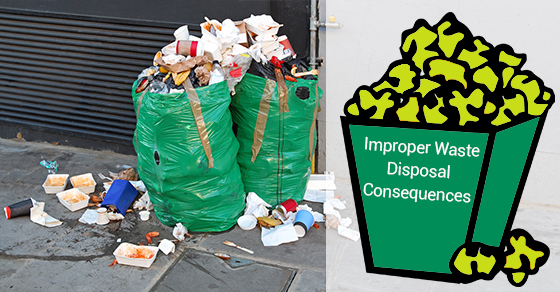It’s easy not to think about your garbage once you have thrown it away. Junk It! makes that even easier as it’s what we do, but it’s still important to have a second thoughts about what you’re throwing away before you decide it is junk.

One man’s trash may be another man’s treasure, but it could also be a landfill addition that’s harming the environment.
More than 75% of all waste ends up in landfill, with less than a quarter of all waste being recycled. With 10,000 landfills across Canada, Canadians generate approximately 31,000,000 tonnes of garbage a year. On top of that, only about 30% of it is recycled!
That’s a lot of waste, and it has led to many landfills approaching capacity. This is concerning not only because we’re generating so much junk, but because building new landfills would cost the government a lot of money, which would cut into budgeting for other important causes.
The costs of bad waste management are staggering when you look at the consequences on an environmental level. Not only does the price of improper disposal come from people’s pockets, but nature also pays the price. Considering the amount of trash we produce on a yearly basis, a new landfill would need to take up a lot of space, thus clear-cutting plant life and destroying important ecosystems.
Plant life, animals and marine life all take a toll from improper waste management.
If certain materials are disposed of in harmful ways, gasses and toxic matter can end up back in contact with us, or within the environment we inhabit. Items with batteries, chemical components, gas containers or solvents and paints should be taken to the correct facilities to prevent negative consequences.
Taking note of your local authorities methods of labelling bins, stickers and drop-off points is essential to doing your part for proper waste disposal!
Improper hazardous waste disposal doesn’t just contaminate soil and the local water supply, but it can also pollute the air. An area with a reputation for a toxic environment can also be susceptible to lower property values, so not following proper disposal procedures can even effect the cost of your home!
Recycling and re-homing things that would normally go to a landfill are great ways to minimize waste.
It’s important to think about what you are throwing away before you commit it to a landfill, as maybe something that’s cluttering up your life is exactly what someone else needs. Look into your local thrift stores and see if your junk would be of value to others, and if it’s not, dispose of it properly!
We can all do a little something to improve our environment.
